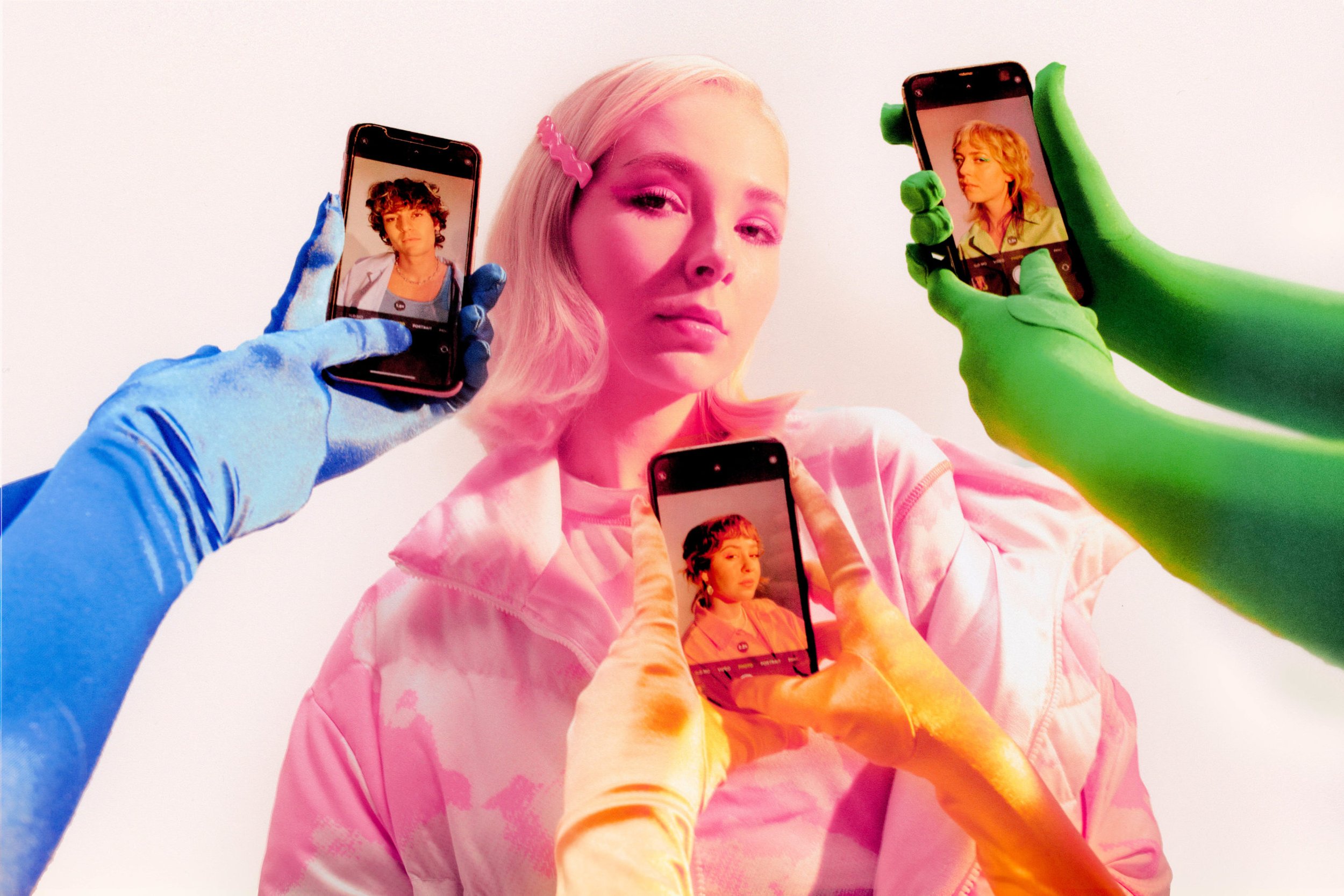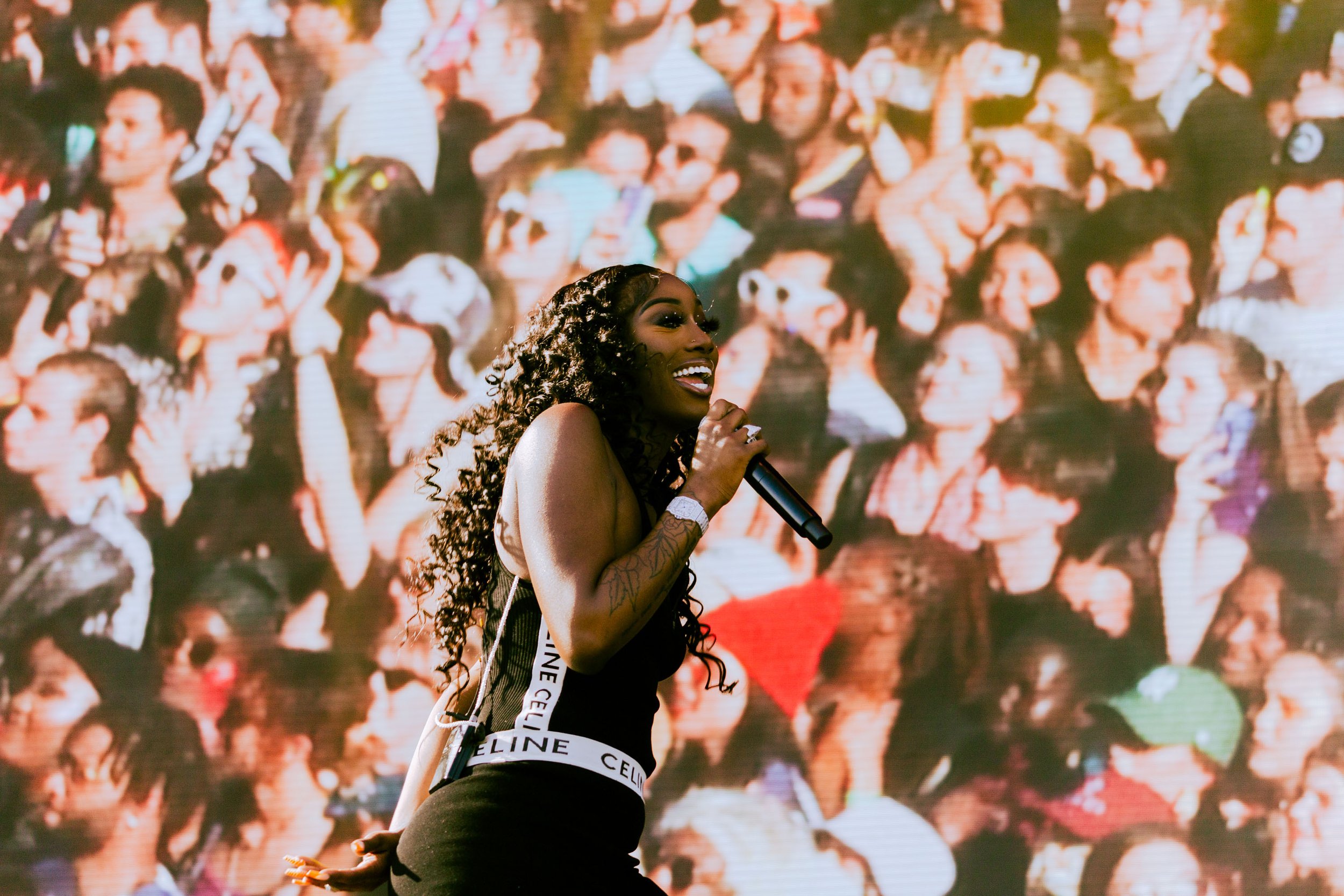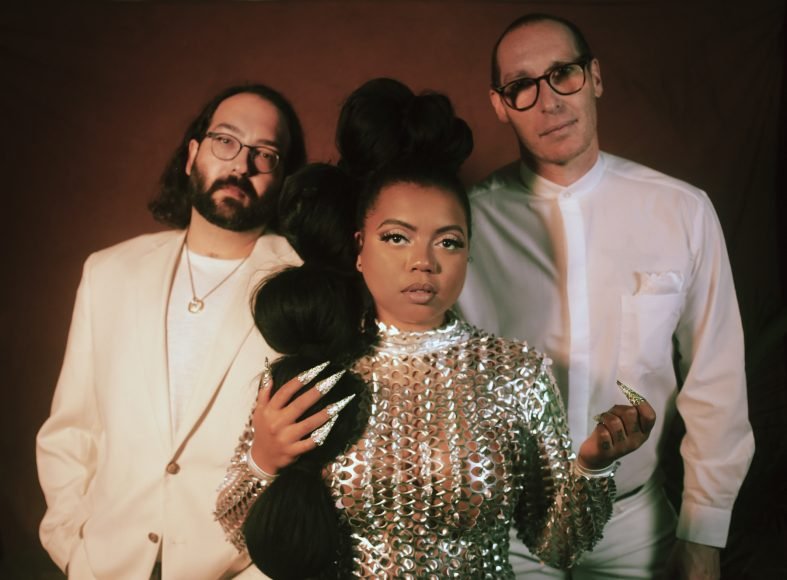Julie Odell Transforms with "Autumn Eve"

The folk singer-songwriter grows through the cracks of life, blooming on her long-awaited debut
Julie Odell knows a lot about patience. Her music is something that sits on her windowsill. It’s a butterfly in flight for a brief moment, a tempo change, a fall and a lift. It’s a chain of leaves tied together in a stream, only to wash away with the slow current. It’s the heavy leaves of October, and the fast vines of spring ivy growing up and into buildings.
Odell’s music is a practice of catch and release: she learns how to let go, and how to transform with the world around her, even if she wants to hold onto things with white knuckles. Her debut record, Autumn Eve, is a testament to process and trusting oneself, even when you feel like you’re the only one who gets you.
Autumn Eve took ten years to make. Arguably, it’s a record that could have easily slipped away from the folk singer-songwriter, as life went on, adulthood became more real, and her daughter was born. Half of the songs are from pre-motherhood, written when Odell was traveling, working on farms in the Carolinas, haunting pubs in Ireland, and escaping deep into the woods with a battery-powered four-track recorder, where she swore she would make the record all by herself. It didn’t happen, but she sat on the songs.
In the Carolinas, Odell had a child. Not too long after, Odell’s own place of birth, Louisiana, drew her back. She missed the swamp, or as she likes to describe it, “the lush, the grit, and the swampy, syrup-y water everywhere.” She moved to New Orleans, and she settled in. She wrote more songs and circuited the same quirky venues for years. She recorded Autumn Eve at the Music Shed and at a friend’s home studio in Lafayette, and had it finished and mastered in 2018. Then, Odell sat on the recordings.
Time could have faded these songs into irrelevance. As life got more complicated, they could have lost their urgency, and felt less true to the person that Odell was becoming. However, what makes this record so special is that time is exactly what the songs–and Odell herself–needed. Without the marathon, the moments of sedentary silence, without holding on as the strong currents of her life roared and tried to rip her hands from any sort of float, any kind of life source, Odell would not have washed ashore and discovered what she needed to be.
Autumn Eve is a gorgeous record. The songs move organically, abandoning traditional pop sensibility for the sake of real, unpolished, human storytelling. It would be hard to analyze her songs in the way we usually think of song structure: is this the chorus? Well, it only happens once. Is this the bridge? Well, halfway through she’s abandoned everything, trading an all-four-on-the-floor folk brashness for a whispered silence that she’ll leave us with, the song ending in a way that we wouldn’t expect, and yet still feeling complete. Instead of being confined to conventional structure, the songs rise and fall at their own will, guided by Odell’s intuition.
“I think you’d love it here in New Orleans / At least for six months before it starts pouring / I’ve had too many precious things just wash away / And it all got better when I changed my name,” Odell sings on the opening track “St. Fin Barre,” her yell climbing and falling with the rest of the band. Her voice is crystal clear, and yet, there’s something rough around the edges that can’t quite be tamed.
Odell has a gentle nature to her that is powerful. Like a glacier, there is stored energy in there. Inertia. Blunt microbangs sit on her forehead, and her hair is as black as a raven's coat. On a Zoom call, a plaid curtain is visible hanging in a doorway, the draft of the air conditioning causing it to hover back and forth like a ghost. She’s calling from Asheville, where she has just moved. Odell left the familiarity of New Orleans to return to the Carolinas, and she’s settling there for now. Instead of lush grittiness, she’s now surrounded by Blue Ridge Mountains.
Robin’s egg blue cabinets rest against the wall, and an old wooden dresser that looks like a school desk houses Mason jars sprouting a small hydroponics garden. She sits in a room flooded with natural light, while her seven-year-old daughter, Lilou, dips in and out of the camera.
You presumably see the world differently once you have a child. Parents remember their lives before and after their children as two completely different stories, before and after. For Odell, the experience of motherhood was an intense transformation. Here was something, a being, she had to protect from a world that in the past, had sometimes ostracized her. One that she didn’t always identify with. One that, at 26 years old, she was trying to navigate and figure out how to arm herself against, and yet all the while remain vulnerable to.
Odell was born in Northern Louisiana to a family of traveling artists. A large part of her early adolescence was spent living out of a van, coasting American byways to art fairs with her parents, which is how they earned a living. As a result, Odell saw art as a fate she could never outrun. It became an inevitable dream as sure as the night sky she saw outside her car window.
“Growing up, I was really shy, and I had a hard time connecting with most people,” Odell admits. Being surrounded by swamps or flashes of road trip scenery, she found that nature could be a wordless confidant. “[It’s] been my friend all my life, and my safe space to go to,” she explains.
However, nature is more than just a companion to Odell. In nature, she found a mirror of her inner storms. She looks outside past the Zoom camera.“Lots of people can go in nature and level out,” she says. “But I feel like nature is so chaotic that it makes it normal and beautiful.” Odell began to see her own inner chaos not as an affliction, but as a natural occurrence. She discovered that there were wild things inside herself that did not deserve to be harnessed or controlled. Relating to the natural world around her, and seeing how powerful it is, made Odell realize that there is power in her own chaos, her own contradictions, and that there is beauty in the mess of it all.
“And then you walked with me / Straight to the Mulberry / And then you painted my face with it’s purple / Reminded me of blood / That came straight from the forest from which my soul was cut,” Odell sings on the track “Cardinal Feather,” her voice flurrying and falling like a butterfly's erratic flight. Shoegaze guitars wash like a heavy wave of indigo while mallets hit the tom drums with a sense of urgency, and they create the feeling that you’re running, chasing something almost in grasp. It’s as if you’re surrendering to joy, shaking up a soda can, feeling the pressure, and releasing all of the sticky orange sweetness into the sky.
“I can’t help but live intensely with every single breath / I’m so in love with life, I love with all my might,” Odell sings with a sharp inhale, dizzy from spinning, and yet seeing the world perfectly clear from where she stands.
Still, Odell finds change brutal, even if it’s natural and chaotic, and the way she struggles with it brings her closer to us. In the short, sparse track “Space,” we are with Odell in the bathroom of some bar, tears streaming down her face, watching her tell her reflection in the dirty mirror that it’s all going to be okay. “Don’t wanna feel no pain, what I’ve lost I’ll gain / Wanna take a turn, show that I’ve learned / That I’ve always been wrong, but I won’t before long / Cause that’s the way that life goes right? / Ya can’t be wrong your whole life,” Odell sings, her voice breaking on the last line as if she’s using every bit of her last strength to will it to existence: at some point, we do get what we want, right?
This all comes to a head with the just-under-nine-minute title track, “Autumn Eve.” Autumn Eve is the name of the gravel road Odell lived on in Mountain Rest, South Carolina, where she gave birth to her daughter. It’s also where postpartum depression folded the walls of her life in on her. And it’s where she’d pull herself out of it, transforming with life, beating in rhythm with its earth-shattering pulse.
Chords crunch together, slide guitars ring out, distortion rips when it needs to, and everything falls to cold silence when it’s time. “Autumn eve, autumn eve the Japanese Maple sheltered me / On the snowy morning I gave birth / The bat that flew above my head to get me up out of my bed / It’s time to go outside and see your breath,” Odell sings, whispering before she howls, “Mother Nature called on you to be a mother raise your baby right.”
On the day Odell gave birth in a cabin on the cusp of a 2,000 acre national forest, where a blizzard would knock the power out, she discovered rabbit, fox and deer tracks outside her front door. Odell laughs about it now. “Are all these animals coming to my door to check and see if I’ve had my baby yet?,” she says as she tells the story, experiencing it all over again. But it’s something deeper than a story to joke about, as whimsical and Disney-esque as it might seem. Maybe there is a reason for everything, a purpose for it all. “Walking this path of all these animal tracks on Autumn Eve Road, it was just, I was like, Yeah, life is full of magic,” Odell says, leaving us with a long silence, a gentle, crooked smile.
Odell doesn’t see herself as creating precious gold. Instead, she gave us a gift. The rugged sound that comes out kicks up dust inside you, rips like a freezing waterfall, and within a second, can become as soft as a southern mosquito landing on your skin without you even realizing it. Odell gave us her broken parts, and a map of how to navigate them. She has given us a voice that prevails through life's stark whiteness, it’s crumbling, it’s bleakness, and has shown us how to be a stubborn dandelion that grows in the cracks of it all.





